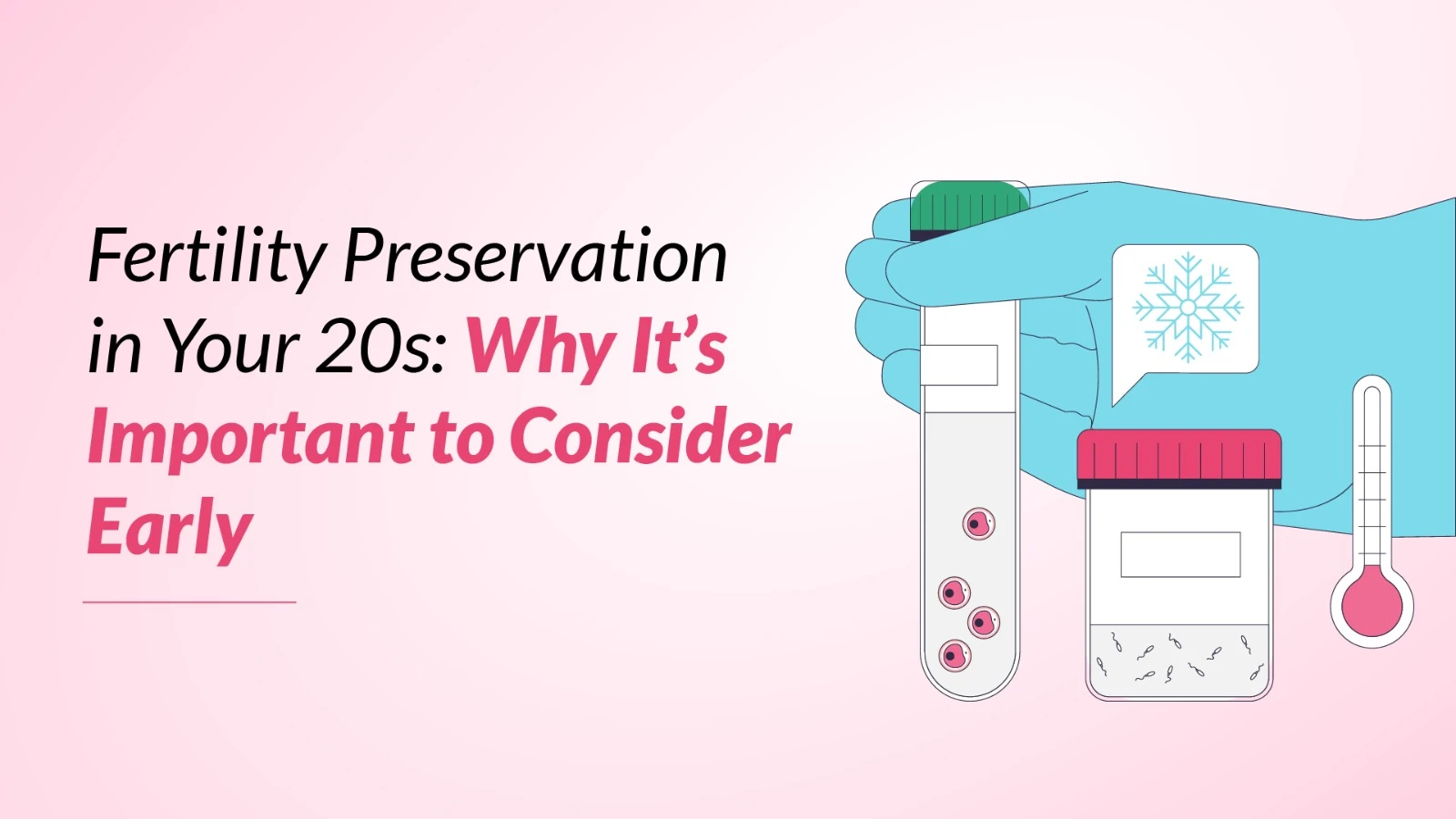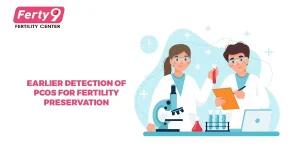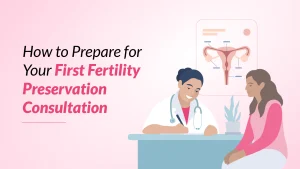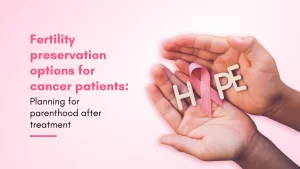Have you ever wondered about your future family planning? For many young women, the thought of preserving fertility may not cross their minds until later in life. However, the truth is that fertility preservation is an essential topic to consider in your mid to late-20s. Studies show that female fertility starts to decline after the age of 30, with a sharper drop in the mid-30s. Moreover, nearly 10-15% of couples in India face infertility issues, with late family planning being a significant factor.
The good news is that modern medical advancements, like female egg freezing, provide hope. By freezing your eggs early, you can safeguard your future fertility and ensure better chances of pregnancy when you’re ready. This process, known as fertility preservation, is a growing trend among women who want to take control of their reproductive health.
What is Fertility Preservation?
Fertility preservation refers to methods used to protect or save eggs, sperm, or reproductive tissues for future use. It allows individuals to maintain the ability to have biological children later in life, even if natural fertility declines due to age or medical conditions.
Why Consider Fertility Preservation in Your Mid to Late-20s?
Here are some key reasons why you should consider fertility preservation in your mid to late-20s:
Age and Fertility Decline
As women age, their egg quality and quantity gradually decline. By the time you’re in your 30s, the number of viable eggs decreases significantly. Opting for fertility preservation in your mid to late-20s means freezing high-quality eggs when you are at your most fertile stage, giving you better pregnancy chances by age later in life.
Flexibility for Future Family Planning
Freezing your eggs in your mid to late-20s provides flexibility. Whether you want to focus on your career, education, or personal goals, preserving eggs for fertility ensures that you have the option to start a family when the time feels right.
Medical Considerations
Certain medical treatments, like chemotherapy, can affect fertility. For women undergoing such treatments, egg preservation can be a lifeline, allowing them to have biological children in the future.
Optimal Egg Quality
The best age to freeze eggs is in your mid to late-20s, as eggs retrieved during this period are healthier and more viable. This significantly increases the chances of a successful pregnancy in the future.
Maximizing Pregnancy Success
By choosing egg freezing early, you can improve your odds of conception later. Studies show that egg-freezing success rates are highest when eggs are preserved at a younger age.
Lower Age-Related Fertility Risks
Freezing your eggs reduces the risks associated with advanced maternal age, such as genetic abnormalities or complications during pregnancy.
Better Emotional and Mental Well-being
Knowing that you have taken steps to secure your fertility can provide peace of mind and reduce anxiety about future family planning.
Avoid the Pressure of Time
Many women feel societal pressure to start a family early due to the ticking biological clock. By freezing your eggs in your mid to late-20s, you can ease that pressure without compromising your fertility.
Understanding the Egg Freezing Process
Egg freezing in women involves several steps to ensure that high-quality eggs are harvested and preserved for future use. Here’s a detailed look at how it works:
Fertility Consultation & Egg Freezing Process Timeline
The first step in the egg-freezing process is consulting a fertility specialist. They will assess your ovarian reserve, hormonal levels, and overall reproductive health to determine the right approach.
Optimizing Egg Quality – Ovarian Stimulation
Once you decide to go ahead, the process begins with ovarian stimulation. You’ll be given hormone injections to stimulate the ovaries to produce multiple eggs.
Egg Retrieval
After about 10-12 days of stimulation, the eggs are retrieved through a minor surgical procedure. This process is quick, painless, and performed under sedation.
Freezing Your Eggs
The retrieved eggs are then frozen using a process called vitrification. This ensures that the eggs remain intact and viable for future use. Freezing your eggs at this stage preserves their quality and potential.
Saving Eggs for Future Pregnancy
Once frozen, these eggs can be stored for years. When you’re ready to conceive, the eggs can be thawed, fertilized, and implanted to achieve pregnancy. Saving eggs for pregnancy offers a safety for women who want to delay motherhood.
Does the Success of Egg Freezing Vary by Age?
Yes, the success of egg freezing largely depends on the age at which the eggs were frozen. Women who opt for a freezing age limit in their mid to late-20s have significantly higher egg-freezing success rates compared to those who wait until their late 30s or 40s. Eggs retrieved at a younger age are healthier and more capable of leading to a successful pregnancy.
Is Male Fertility Preservation an Option in Your Mid to Late-20s?
While much of the focus is on women, male fertility preservation is equally important. Men in their mid to late-20s can preserve sperm for future use, especially if they are facing medical conditions that may affect fertility. This ensures that both partners can secure their reproductive future.
Find Hope and Solutions for Female Infertility and Male Infertility — Explore Our Comprehensive Services
IVF Treatment
IUI Treatment
ICSI Treatment
PICSI Treatment
Blastocyst Culture & Transfer Treatment
Genetic Screening & Testing
Conclusion
Fertility preservation is a valuable option for anyone considering delaying parenthood or protecting their fertility for medical reasons. By taking this step early, you increase your chances of enjoying a healthy pregnancy later. If you’re thinking, “Should I freeze my eggs?” the answer could be yes if you want to safeguard your future fertility.
At Ferty9 Fertility Center, we offer advanced fertility preservation services to help you take control of your reproductive health. Consult our experts today to learn more about how we can assist you in planning for a secure and happy future.




























